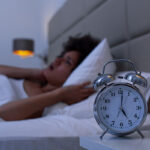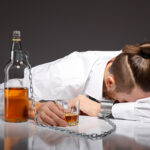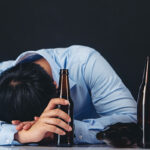Can Alcohol Use Lead to Insomnia?
Guess what? Approximately 20% of American adults consume alcohol every night to help them fall asleep. And, 253 days are missed at work each year due to alcohol-based insomnia (i.e., weekend parties, celebrations, etc.). Did you know that 30% of US adults admit to experiencing acute insomnia after drinking too much alcohol? Well, it’s true!
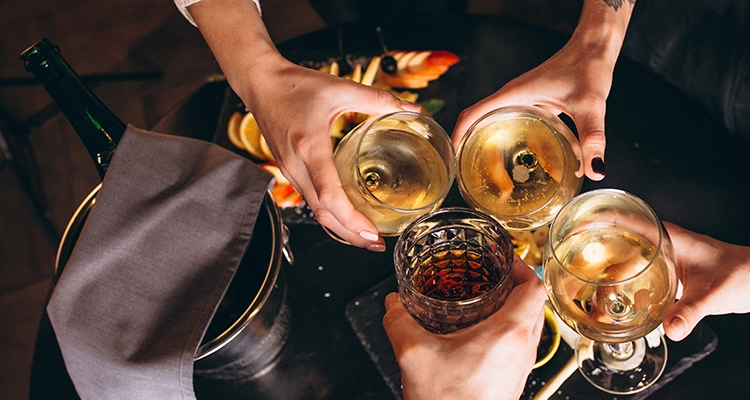
The truth is any amount of alcohol can disrupt your sleep patterns, triggering or worsening insomnia or “sleeplessness.” According to researchers, drinking alcohol can prevent you from entering REM sleep (deep sleep), alter how much time you sleep overall, and affect how quickly you fall asleep. And, the exact processes that occur in the body during sleep are unknown, studies indicate that “sleeplessness” is connected to health problems, such as heart disease, heart attacks, strokes, clinical depression, anxiety disorders, and panic attacks, inflammation, low immune system, asthma, diabetes, high blood pressure, obesity, etc.
Adding alcohol, especially large quantities of it, to the mix to help you sleep, only compounds these effects and heightens these risks – maybe not at first, but eventually. It doesn’t matter if you are an alcoholic or simply have a hard time falling asleep at night – using alcohol as a “sleep aid” is never a good idea – at least not long-term, because it can do more harm than good. Alcohol may help you sleep initially, but eventually, you will need more of it to get the same quality of sleep. And, you may end up with two problems – alcoholism and insomnia.
The good news is there are ways to improve your sleep health, so you feel strong enough to tackle your alcohol problem or stop drinking. While it is important to address any alcohol issues, it is equally important to address your sleep issues. Addressing your alcohol issue may or may not be enough to stop insomnia.
Thus, improving your sleep quality may need to be addressed separately, while working on your alcohol issue. That’s where natural sleep alternatives come into play, such as melatonin supplements, lifestyle changes, exercise, a stable bedtime routine, online insomnia treatment programs, like Somnus Therapy, etc. These sleep tools can help you get your insomnia under control, so you can devote more energy to confronting any other issues.
So, can alcohol use lead to insomnia? Absolutely!
Content
What Causes Insomnia?
The exact cause of insomnia varies from person to person, however, most of the time it stems from a “stressor.” While the exact cause of primary insomnia is usually unknown, there is usually a known cause of secondary insomnia, such as a change in routine or work or school schedule, traveling and jet lag, poor sleep hygiene (sleep habits), and/or a stressful or overwhelming event or situation.
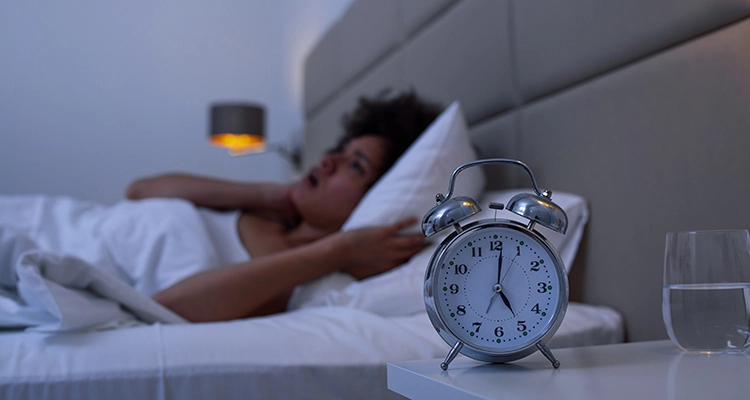
Medication side-effects, eating a heavy meal too close to bedtime, consuming caffeine, nicotine, and/or alcohol late in the day, alcohol and drug use or abuse, an injury, health condition, or illness, hormones, anxiety or depression, a loss of employment, a loved one, friend, or pet can also keep you awake at night. But, anything (known or unknown) that disrupts your circadian rhythms (sleep/wake cycles or internal clock) can cause “sleeplessness” or insomnia.
How Does Alcohol React in the Body?
First, it is important to understand that alcohol is a depressant that affects your central nervous system (CNS). Alcohol can ease your anxiety, uplift your mood, lower your inhibitions, lessen your self-awareness, impair your judgment, distort your perception, disrupt your muscle coordination, and reduce or eliminate your guilt and shame. Ultimately, alcohol temporarily relaxes you so you feel bolder and more social. When abused or consumed in high quantities, alcohol can lead to alcoholism, alcohol poisoning, unconsciousness, coma, and/or death.
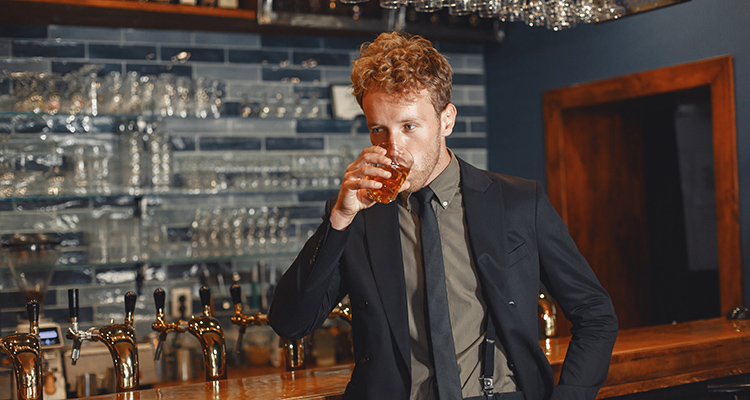
What is Alcohol Abuse?
Alcohol abuse also referred to as “binge drinking,” “problem drinking,” or “heavy drinking,” is the 2nd most common form of substance abuse in the US. In fact, researchers suggest that alcohol abusers or “binge drinkers” have a high risk of experiencing insomnia or “sleeplessness.” Unlike alcohol use disorder or alcoholism, people, who abuse alcohol are not dependent on or addicted to alcohol – yet. In other words, most alcohol abusers can reduce or even stop the behavior – if they try.
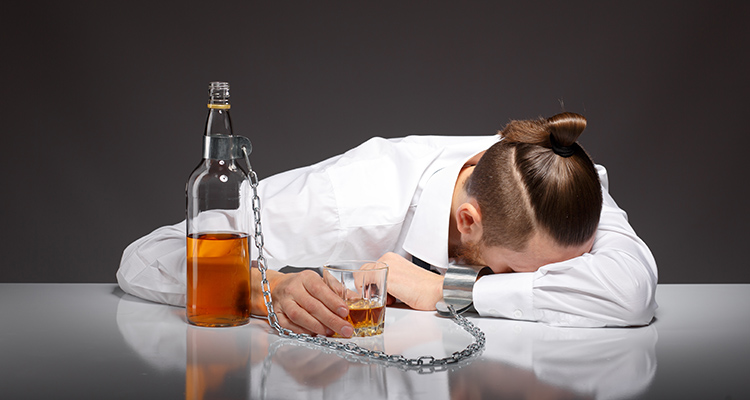
Alcohol abuse involves consuming more alcohol than originally planned, continuing to drink alcohol – even though friends and loved ones have voiced their concerns about your alcohol consumption, and being unable to reduce or quit drinking alcohol. Eventually, an alcohol abuser develops a “tolerance” towards alcohol, requiring more of it to experience the desired results – i.e., numbness, euphoria, and/or the feeling of being “high.”
Keep in mind that abusing alcohol or “drinking heavily” can adversely affect your organs (i.e., brain, heart, liver, stomach, and nervous system). It can also heighten your risk of developing mouth, esophageal, throat, and/or larynx (voice box) cancers. In fact, women, who abuse alcohol, have an increased risk of developing osteoporosis and/or breast cancer.
The defining marker for alcohol abuse is not how much you drink (like in alcoholism or alcohol use disorder), rather, it’s how the alcohol makes you feel. Still, the signs and symptoms of alcohol abuse are largely dependent on the individual. Some signs and symptoms may resemble those of alcoholism or alcohol use disorder – only to a lesser extent.
Listed below are common signs and symptoms of alcohol abuse:
- Frequently shirking responsibilities due to drinking too much or “hangovers”
- Engaging in risky behaviors after consuming large amounts of alcohol (i.e., falls, drowning, drinking and driving, or operating a plane or helicopter while intoxicated)
- Participating in domestic violence or displaying violent behaviors (i.e., sexual assault, sexual abuse, rape, murder, etc.) after drinking large amounts of alcohol
- Engaging in promiscuous behaviors after consuming alcohol
- Experiencing alcohol poisoning on one or more occasions
- Racking up multiple DUIs and/or accumulating debt due to excessive drinking
- Continuing to drink alcohol, regardless of how it affects your relationships, job, self-esteem, finances, and household or child responsibilities
- Drinking large amounts of alcohol to relax, “escape,” or de-stress
- Consuming alcohol to feel happy and/or pain-free
- Using alcohol to help you sleep at night
Note: Chronic alcohol abuse not only impacts your personal life, work, relationships, and/or finances, but also your health – i.e., kidney, liver, and/or pancreas issues, high blood pressure, cancer, low immune system, depression, anxiety, learning delays, poor memory, social problems, alcoholism or alcohol use disorder, alcohol poisoning, unintended pregnancies, stroke, heart disease, gastrointestinal distress, miscarriages and stillbirths, fetal alcohol spectrum disorder, etc. Understand, however, that not every alcohol abuser will become an alcoholic, however, alcohol abuse is a precursor to becoming fully dependent on alcohol.
What is Alcoholism?
Approximately 64% of alcoholics are currently experiencing insomnia. Researchers still are not sure why some “problem drinkers” eventually become full-blown alcoholics and why some do not. However, genetics appear to play a significant role in the development of alcoholism (alcohol use disorder or alcohol addiction). In other words, if someone in your family suffers from alcoholism, it places you at higher risk of also developing alcoholism. And, if one or both of your parents are alcoholics or struggled with alcoholism at one time, you have a four-fold risk of also becoming addicted to alcohol.
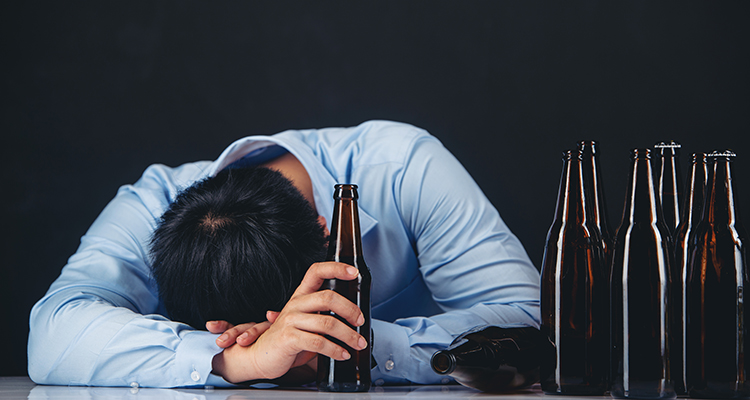
Alcoholism is a two-fold addiction – in that it involves physical and psychological components. It is also a powerful disease capable of damaging or destroying your heart, liver, pancreas, kidneys, brain, etc. However, it’s not always easy to pinpoint the signs and symptoms of alcoholism.
Alcoholism is usually detected after a person receives multiple DUIs, tests over the legal drinking limit, initiates or participates in alcohol-related disputes or violence, and/or loses a job from being intoxicated at work. Unfortunately, these effects typically do not occur until you enter the advanced stages of alcoholism.
Listed below are common signs and symptoms of alcoholism:
- A progressive tolerance to the effects of alcohol, resulting in a need to drink more and more alcohol to receive the desired results.
- A growing fixation or obsession with drinking. Or, drinking solo before or after a “drinking event,” such as a party, celebration, bridal shower, rehearsal dinner, wedding, bachelorette/bachelor party, holiday dinner, concert, etc.
- Adamantly denying that you have a problem with alcohol.
- Staying in an unhealthy relationship or experiencing relationship conflicts.
- Arriving at school or work intoxicated.
- Being unable to function properly without alcohol in your system.
- Experiencing anger, rage, and/or violence fueled by a high alcohol intake.
- Concealing your alcohol consumption from others or drinking it in secrecy.
- Quickly drinking a succession of alcoholic beverages.
- Drinking more alcohol for a longer period as compared to your peers.
- Being unable to stop drinking when you want to.
Is Alcohol Abuse & Alcoholism the Same Thing?
No.
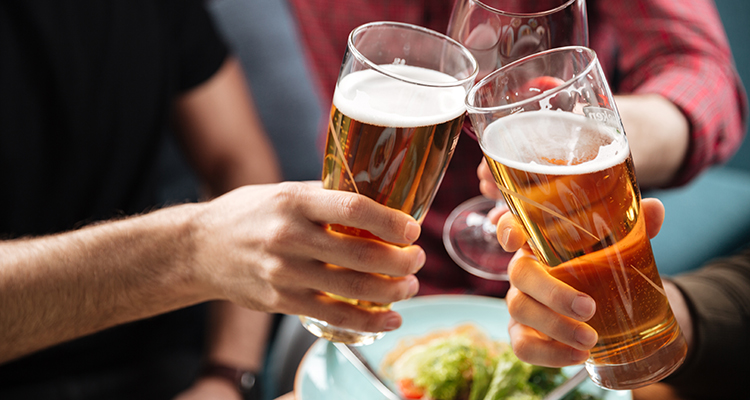
While alcohol abuse and alcoholism are similar, they are not the same thing.
Alcohol abuse is considered “problem drinking,” however, alcohol use has not reached the level of alcoholism or alcohol use disorder – yet. In other words, alcohol abusers can somewhat control their alcohol consumption, while alcoholism is a disease that involves involuntary alcohol consumption.
An alcoholic is addicted to or dependent on alcohol, while an abuser is not. Alcoholism or alcohol use disorder is defined as “chronic alcohol consumption that negatively impacts a person’s physical and mental health, job prospects, employment, self-esteem and self-confidence, relationships, and/or social interactions.”
Is There a Relationship Between Alcohol and “Sleeplessness?”
Absolutely!
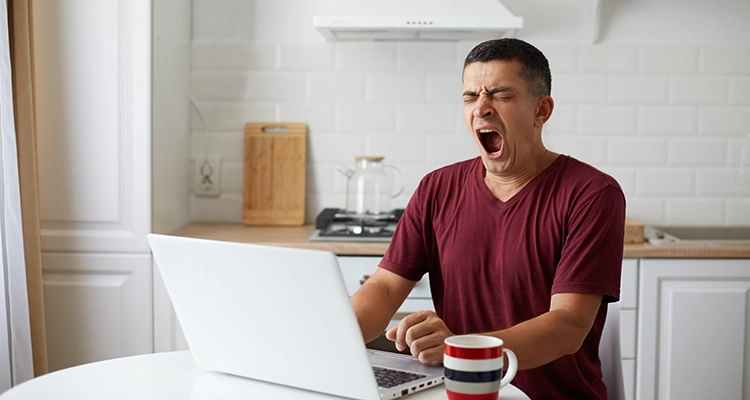
Alcohol is a natural sedative that can cause you to feel drowsy or sleepy – especially if you drink too much too quickly. But the truth is alcohol can encourage and prevent sleep, depending on the individual. In fact, researchers suggest that alcohol’s effect on sleep is not only individual-based but also consumption-related. In other words, alcohol’s ability to help you sleep primarily stems from how much alcohol you consume, your body chemistry, and your tolerance level. Indeed, multiple studies indicate that there is a connection between alcohol use, abuse, and addiction, and sleep disorders like insomnia.
So, how does alcohol affect sleep? Well, to understand alcohol’s effects on sleep, you must first understand how the human brain works. Cells located in your forebrain are responsible for encouraging “wakefulness.” Research suggests that alcohol prevents gamma-aminobutyric acid (GABA), a neurotransmitter, from triggering these brain cells. When GABA is unable to activate your brain cells, it disrupts your circadian rhythms (sleep-wake cycles) and causes insomnia. GABA reduces your brain activity, so you feel tired and ready for bed.
Alcoholism can trigger insomnia or “sleepless nights,” but the reverse is also true. Insomnia or “sleeplessness” can lead to alcoholism. More specifically, a lack of sleep can cause you to turn to alcohol as a “sleep aid.” And, too much alcohol can prevent you from entering REM sleep (deep sleep), which is not only essential for healthy brain function, but also for your health and well-being. When you do not get enough quality sleep, it eventually takes a toll on your self-esteem and self-confidence, bank account, and relationships.
So, even though a little alcohol before bed may reduce or eliminate insomnia or “sleeplessness,” it can swiftly become progressive. In other words, insomniacs, who rely on alcohol to sleep, may develop a tolerance to it, requiring more of it to reap the sedative effects. In fact, a 2013 study found that alcohol can rapidly become ineffectual when used repeatedly for insomnia or “sleeplessness.” However, researchers did find that limited amounts of alcohol may increase a person’s overall sleep time and prompt deeper sleep – but only temporarily.
Hence, researchers have concluded that insomniacs that turn to alcohol for sleep issues are at-risk of developing alcoholism or alcohol use disorder due to escalating tolerance-related alcohol consumption. Thus, chronic and excessive alcohol use or abuse can prevent you from getting the zzz you need to function properly. Moreover, drinking large amounts of alcohol, especially close to bedtime, can cause frequent late-night wake-ups. In fact, a recent study found that 58% of alcoholic men grapple with insomnia or “sleeplessness.”
Research also suggests that alcohol can trigger or worsen breathing issues, such as snoring, sleep apnea, or other sleep disorders, such as narcolepsy or daytime sleepiness. FYI: Alcohol abusers (“heavy drinkers”) have the highest risk of activating or aggravating sleep apnea, which can lead to heart attacks, strokes, or death. High levels of alcohol can also lead to gastrointestinal distress, headaches/migraines, night terrors/nightmares, etc.
Furthermore, studies indicate that alcohol can interfere with rapid eye movement (REM) sleep and non-REM sleep. So, although the exact relationship between alcohol and sleep is vague and even though study results have been mixed, alcohol appears to reduce REM sleep (overall). Thus, researchers have concluded that repeatedly consuming alcohol (over a long period) can cause a decline in sleep quality.
Note: After discontinuing your alcohol consumption, you may still continue to experience insomnia or “sleeplessness.” More specifically, it could take months or years to see a noticeable improvement in your sleep quality after you stop drinking alcohol.
If you are interested in finding ways to “cure” your insomnia, it is imperative that you also take into consideration your alcohol use, abuse, or addiction. If you only work on improving your insomnia without addressing your “alcohol habit,” treatment will be unsuccessful. Thus, it is important to treat your “sleeplessness,” while also addressing your alcohol problem.
Could My Alcohol Consumption Be Affecting My Sleep Quality?
Yes, especially if you have a habit of consuming too much alcohol too late in the evening.
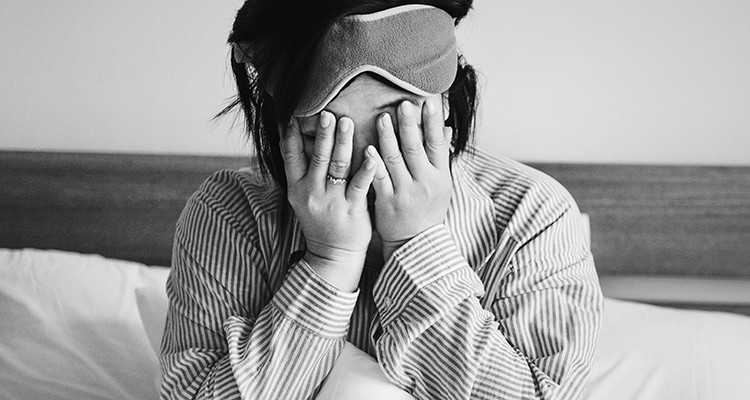
Drinking too much alcohol too late at night can impact how well you sleep at night. The truth is alcohol has always been a precursor to insomnia. Drinking too much alcohol too close to bed can prevent you from getting the zzz your body needs to function at an optimal level. More specifically, alcohol-based insomnia can keep you awake most of the night and have you staring hopelessly at the ceiling, tossing and turning, waking and being unable to fall back asleep, and/or experiencing nightmares or night terrors.
When alcohol disrupts your circadian rhythms, it can cause you to feel fatigued, drowsy, confused or disoriented, irritable, achy, and unmotivated the next morning. If this only happens occasionally (acute insomnia from alcohol consumption), it’s probably not a serious problem, however, if you have a hard time getting quality sleep more days than not (chronic insomnia from alcohol consumption), it may be time for you to seek help for your alcohol use and “sleeplessness.”
Excessive alcohol use and chronic insomnia can take a toll on your physical and mental health. More specifically, this combination can negatively affect your school or work performance, productivity, energy level, relationships, self-esteem and self-confidence, mood, health and well-being, and overall quality of life. So, even though alcohol may help you get some zzz at first, it can have the opposite effect over time.
Alcohol can prevent you from entering a deeper sleep. And, when you are unable to fully enter REM sleep (deep sleep), your brain and body are unable to properly prepare for the next day. Thus, using alcohol to help you sleep is ineffective long-term because eventually the original effects (sound sleep) diminish, requiring you to drink more and more alcohol to get the desired effects. This puts you at-risk for alcoholism. The good news you can address your alcohol use, while you treat your insomnia.
Can Stopping Alcohol Also Cause Insomnia?
Yes, in fact, it is common to experience sleep issues after stopping alcohol use.
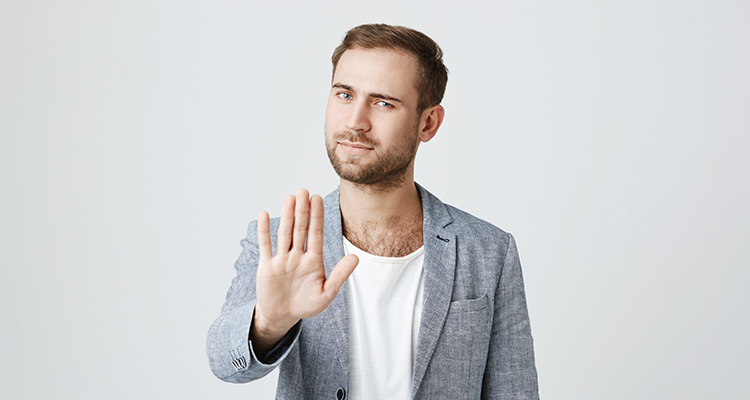
Unfortunately, alcohol withdrawal can quickly lead to insomnia or “sleeplessness.” In fact, it is one of the most common symptoms after discontinuing alcohol use. Alcohol withdrawal insomnia can continue until the primary problem (i.e., alcohol consumption) is addressed or resolved or until the alcohol is completely out of your system. However, this could take months, depending on your body chemistry.
Alcohol withdrawal insomnia may present in the following ways:
- Waking up several times during the night
- Being unable to fall asleep
- Becoming restless (tossing-and-turning)
- Experiencing nightmares or night terrors
- Experiencing extreme fatigue and/or daytime sleepiness
- Developing anxiety from being unable to sleep
- Feeling exhausted upon awakening
Note: Alcohol withdrawal insomnia can trigger or worsen other health issues, such as moodiness, bipolar disorder, and depression. “Sleeplessness” can affect your mood, causing you to become cranky and irritable upon waking.
How Can I Work on My Insomnia While Addressing My Alcohol Issue?
Well, if you have turned to alcohol to help you sleep or if you have an “alcohol habit” and find it nearly impossible to sleep, then you may want to check out Somnus Therapy. Somnus Therapy is an expert-crafted online sleep program designed to help you recapture those zzz.

Somnus Therapy uses a variety of effective tools, such as cognitive-behavioral therapy for insomnia (CBT-I) and Acceptance and Commitment Therapy (ACT), cognitive restructuring, 60 personalized audio sessions, and 100+ sessions of guided sleep meditations (created by specialists, experts, and therapists). The best thing about this sleep program is you get to do it all from the comfort of your home!
With Somnus Therapy, you’ll receive the results you are seeking – which is sound sleep every night. Somnus Therapy is your very own cheerleader, encouraging you to take steps to reclaim your sleep health!

